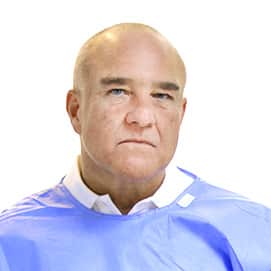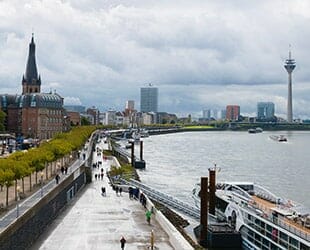The reasons for the development of kidney cancer are still not clearly explained. But there are certain factors that increase the risk of developing the disease. The following factors increase the risk of kidney cancer.
Risk factor: smoking
Nicotine is considered a risk factor for kidney cancer. The risk of cancer increases with an increasing number of cigarettes smoked per day and with an increasing duration of the smoking period. The earlier in a person's life they start smoking, the higher their risk of developing kidney carcinoma in their later years. Quitting smoking makes sense at any time to significantly reduce the risk of cancer. Consider that smoking increases the risk of more than just kidney cancer. From 25 to 30% of all types of cancer, primarily lung cancer, is attributed to smoking.
Risk factor: medications
Regular use of certain pain medications, primarily those containing phenacetin, has been associated with kidney damage and appears to contribute to renal carcinoma.
Risk factor: genetic factors
Hereditary factors may also play a role in the development of kidney cancer. Approximately one in 100 patients has a genetic predisposition to develop this type of cancer. The predisposition can be inherited in the family circle. Studies have shown that people with a certain change in hereditary material have an increased risk of developing kidney cancer. Similar genetic changes have been regularly observed in Hippel-Lindau disease, a rare hereditary disease accompanied by tumors in various organs. People suffering from this hereditary disease also develop renal cell carcinoma in 28-45% cases. People with tuberous sclerosis have an increased risk of kidney cancer. This is a rare hereditary disease that leads already in childhood to tumor-like changes in organs.
Risk Factor: Medical Factors
People with chronic kidney disease (loss of kidney function) have an increased risk of the disease. Being overweight, especially in women, is a risk factor for kidney carcinoma. It is possible that hormonal factors play a role in this.
Risk factor: profession
It appears that certain occupational groups are at increased risk for kidney cancer. This includes workers who primarily come into contact with asbestos, cadmium, dry cleaning solvents, and fuels and other petroleum products. We are talking about substances obtained primarily from metalworking and the production of coke and coal gas.
Head of the Clinic of Oncology, Hematology and Palliative Medicine
Head of the Clinic for General, Visceral, Thoracic and Endocrine Surgery
Head of the Clinic for Radiation Therapy and Radiological Oncology
Video
Request appointment
Useful links
Photo gallery












